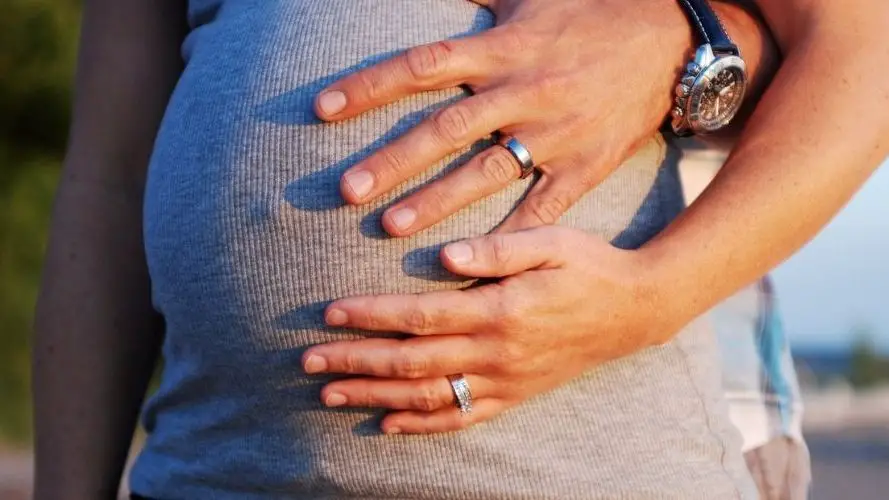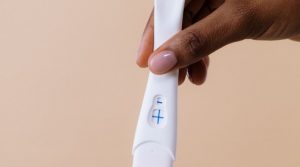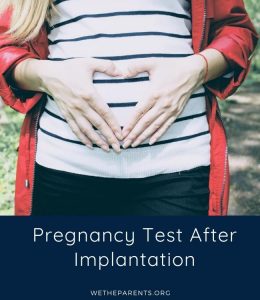Have you been looking for a guide to getting pregnant? Here are 10 tips to help you conceive faster.
We’ve unlocked the science involved in conceiving a baby to ensure you do everything in your power to fast-track the arrival of a positive pregnancy test.
10 tips for getting pregnant fast
1. Get to know Aunt Flo
While menstrual cycles vary, most women ovulate once a month. During ovulation, a woman’s body goes through hormonal changes before releasing an egg into the ovaries.
Ovulation typically occurs 12 to 16 days before your period. This is when you are most fertile.
Some signs of ovulation include a higher basal body temperature, higher levels of luteinizing hormone (LH), the production of thin, stretchy vaginal discharge, breast tenderness, bloating, spotting, and cramping. 1Ovulations Calculator webmd.com/baby/healthtool-ovulation-calculator
You might consider using an app-based ovulation tracker, such as Fertility Friend, Period Tracker, or Glow. These programs use data to estimate when your monthly ‘friend’ is going to arrive.
2. Cancel those birth control refills
You won’t have much luck getting pregnant if you’re on birth control. Ditch the pills, patches, and intrauterine devices (IUD) as soon as you start trying to conceive.
Add condoms, diaphragms, vaginal sponges, and spermicides to that list of methods you need to discard.
You may be wondering what happens when you stop taking something that’s been part of your daily routine since high school.
According to the United Kingdom’s National Health Service (NHS), it can take women up to three months to return to their regular menstrual schedules after they stop taking oral contraceptives. 2When will my periods come back after I stop taking the pill? nhs.uk/conditions/contraception
Still, you might have a better chance of getting pregnant if you’ve been using birth control for several years.
In a recent study, researchers found that prolonged use of oral contraceptives decreased women’s chances of experiencing delayed conception.3Farrow, A., Hull, M. G. R., Northstone, K., Taylor, H., Ford, W. C. L., & Golding, J. (2002). Prolonged use of oral contraception before a planned pregnancy is associated with a decreased risk of delayed conception. Human Reproduction, 17(10), 2754-2761.
academic.oup.com
3. Optimize your calendar
A woman’s fertility window includes the five days leading up to ovulation. Your chance of conception is highest during the two days leading up to, and the day of, ovulation. 4Wilcox, A. J., Weinberg, C. R., & Baird, D. D. (1995). Timing of sexual intercourse in relation to ovulation—effects on the probability of conception, survival of the pregnancy, and sex of the baby. New England Journal of Medicine, 333(23), 1517-1521.
nejm.org
The World Health Organization has determined that women are fertile for approximately 9.6 days during their menstrual cycles.5World Health Organization. (1983). A prospective multicentre trial of the ovulation method of natural family planning. III. Characteristics of the menstrual cycle and of the fertile phase. Fertility and sterility, 40(6), 773-778.
ncbi.gov
So, how to make sure that you’re optimizing your babymaking sex? Well, if your period arrives like clockwork each month, then your work should be easy.
You’re likely to ovulate on the fourteenth day of your cycle and can up your chances of conception by having sex once every other day for the 10 days following the fourteenth day of your menstrual cycle.
If your period isn’t that predictable, consider using alternative methods to determine when your body is going to release an egg.
Many pregnant women use special thermometers to track their basal temperatures. The consistency of your cervical mucus may also indicate if you’re experiencing ovulation.
Editor’s tip
Checking cervical mucus consistently is associated with increased probability of conception
https://pubmed.ncbi.nlm.nih.gov/23850303/&sa=D&source=editors&ust=1629450877771000&usg=AOvVaw25_kcoUZ5oT9nBm-wyfO2f
And, sorry ladies, but scientists have successfully disproven the myth that the timing of conception determines the sex of an infant.6Wilcox, A. J., Weinberg, C. R., & Baird, D. D. (1995). Timing of sexual intercourse in relation to ovulation—effects on the probability of conception, survival of the pregnancy, and sex of the baby. New England Journal of Medicine, 333(23), 1517-1521.
nejm.org
4. Health and wellness
One way to get pregnant faster is to make healthy, positive changes to your lifestyle. This means eating better, exercising more, and maintaining a healthy pre-pregnancy weight.
Naturally, you’ll want to continue good habits while pregnant. Underweight, overweight, and obesity in women can all lead to a long wait to become pregnant.
For becoming pregnant, the ideal body mass index (BMI) is between 18.5 and 24.9. If you’re overweight, bringing your BMI down by even 1 or 2 points can make a difference.
If your BMI is above 30, then talk with your doctor, as you may require a higher dose of folic acid. 7Overweight and fertility when planning a pregnancy
tommys.org
A body mass index (BMI) over 30 decreases your chance of getting pregnant by a whopping 50%.8Varma¹, M. D. S., Mhatre, M. V. R., More, M. P. M., & Ayane, S. S. (2015). Measurement of Body Mass Index (BMI) using PIC 18F452 Microcontroller. International Journal on Recent and Innovation Trends in Computing and Communication, 3(4), 2213-2216.
fertilityassociates.co
You should also exercise regularly (though not vigorously) if trying to get pregnant. Each woman’s ideal pregnancy diet and exercise routine will obviously differ.
Talk with your doctor to develop a plan which will help you get pregnant faster.
5. Begin taking those prenatal vitamins
Don’t wait until you have a baby on board to start popping your daily prenatal vitamins. You should consider taking prenatal vitamins as early as three months before conception, or at least as soon as you start trying to conceive.
Supplementary prenatal vitamins fill the gaps in a pregnant woman’s diet.
They offer folic acid (folate), omega-3, iron, vitamin D, calcium, and other important vitamins and minerals. However, do you really need these nutrients before the baby arrives?
Well, folate helps form the neural tube. According to the CDC, healthy levels of folate can help prevent brain defects, including anencephaly and spina bifida.9cdc.gov
Folic Acid
Supplements will also help your body defend itself from any deficiencies, making it easier to fall pregnant.
6. Use fertility-friendly lubricants if necessary
Do you keep a bottle of K-Y jelly or Astroglide by the bedside? That lube may make your sex more enjoyable, but can also prevent your partner’s sperm from reaching your egg.
Over-the-counter lubricants do not contain spermicides. However, they do impact the pH of a woman’s cervical discharge. They may also interfere with the mobility of sperm.10Steiner, A. Z., Long, D. L., Tanner, C., & Herring, A. H. (2012). Effect of vaginal lubricants on natural fertility. Obstetrics and gynecology, 120(1), 44.
ncbi.gov
For those looking to get pregnant faster, we recommend you switch to something with a balanced pH, such as Pre-Seed Personal Lubricant.
7. Eliminate unhealthy habits
According to the Cleveland Clinic, a regular cigarette habit will have a negative impact on your fertility.11health.clevelandclinic.org
How Stopping Smoking Boosts Your Fertility Naturally Infertility rates of smokers are twice as high as those of nonsmokers.
And it’s probably best that you skip that glass of wine, as studies show that excess alcohol consumption decrease’s a woman’s chances of conception. 12Anwar, M. Y., Marcus, M., & Taylor, K. C. (2021). The association between alcohol intake and fecundability during menstrual cycle phases. Human Reproduction.
ncbi.nlm.nih.gov
Try replacing your old vices with healthy foods and moderate exercise. Barre, yoga, pilates, and running are great ways to destress, maintain a healthy conception weight, and improve your overall wellbeing. Your chances of getting pregnant soar when you’re healthy!
8. Give his sperm super powers
Women, do you want to get pregnant fast? Then don’t underestimate your partner’s role in the babymaking process.
There are a few science-based things he might consider to boost his sperm count and, therefore, improve his chances of conceiving. Male obesity, or being too underweight can undermine his potency. 13Palmer, N. O., Bakos, H. W., Fullston, T., & Lane, M. (2012). Impact of obesity on male fertility, sperm function and molecular composition. Spermatogenesis, 2(4), 253-263.
ncbi.nlm.nih.gov
Zhang, Y., Zhang, J., Zhao, J., Hong, X., Zhang, H., Dai, Q., … & Ma, X. (2020). Couples’ prepregnancy body mass index and time to pregnancy among those attempting to conceive their first pregnancy. Fertility and Sterility, 114(5), 1067-1075.
ncbi.nlm.nih.gov
9. Call your primary care provider
You’re privy to the concept of postpartum care, but what’s a preconception checkup?
Arrange a preconception checkup with your regular provider and let them know you’re trying to conceive. They’ll be able to answer your most pressing questions.
They’ll also look for medical conditions that could potentially impact on your fertility and subsequent pregnancy.
According to the March of Dimes, preconception checkups are also recommended for experienced moms. They suggest that women who have experienced any of the following go for a preconception checkup: 14marchofdimes.org/pregnancy/your-checkup-before-pregnancy
YOUR CHECKUP BEFORE PREGNANCY
- Premature birth
- A baby with birth defects
- Miscarriage
- Stillbirth
10. Make the most of your time in the bedroom
Medical professionals recommend that you have sex daily (or every other day), during the ovulation period in order to become pregnant.
When in doubt, seek outside assistance
For most women, conception doesn’t come instantly. It’s crucial that you familiarize yourself with the average conception times depending on your age.
According to experts at the Cleveland Clinic, the average female only ovulates 300 to 400 times during her reproductive lifetime.15Reynolds, L. P., Killilea, S. D., & Redmer, D. A. (1992). Angiogenesis in the female reproductive system. The FASEB journal, 6(3), 886-892.
https://my.clevelandclinic.org/health/articles/9118-female-reproductive-system
Yes, you heard that right! Females are born with ALL their eggs. By the time young women start thinking about having a baby, their once-plentiful stocks are often dwindling.
According to the American College of Obstetricians and Gynecologists, a woman’s fertility starts dropping around the age of 32, while numbers start to dip more at 37 years.
For this reason, they recommend that women over the age of 35 seek outside help if failing to conceive after six months of performing the baby-making dance.
They also advise women over the age of 40 to seek immediate fertility evaluation and, whenever warranted, treatment.
It’s important to remember that age is not the only thing that can impact your fertility. According to the Mayo Clinic, an estimated 10 to 18 percent of women have trouble getting pregnant.16Smith, S., Pfeifer, S. M., & Collins, J. A. (2003). Diagnosis and management of female infertility. Jama, 290(13), 1767-1770.
mayoclinic.org
If you’re under the age of 35 and have been unsuccessful in becoming pregnant for over a year, you may want to reach out for a professional assessment and treatments.
Consult your doctor before attempting to conceive if you have experienced any of the following complications:
- a history of irregular or painful periods
- pelvic inflammatory disease
- repeated miscarriages
- prior cancer treatment
- endometriosis
Wrapping up
We’ve spent hours researching the latest fertility studies, consulting with experts, and talking with fellow parents. We’re confident that our suggestions will help you get that bun in the oven as quickly as possible!
Looking to get pregnant? Why not share your thoughts and questions with us in the comments section below…








